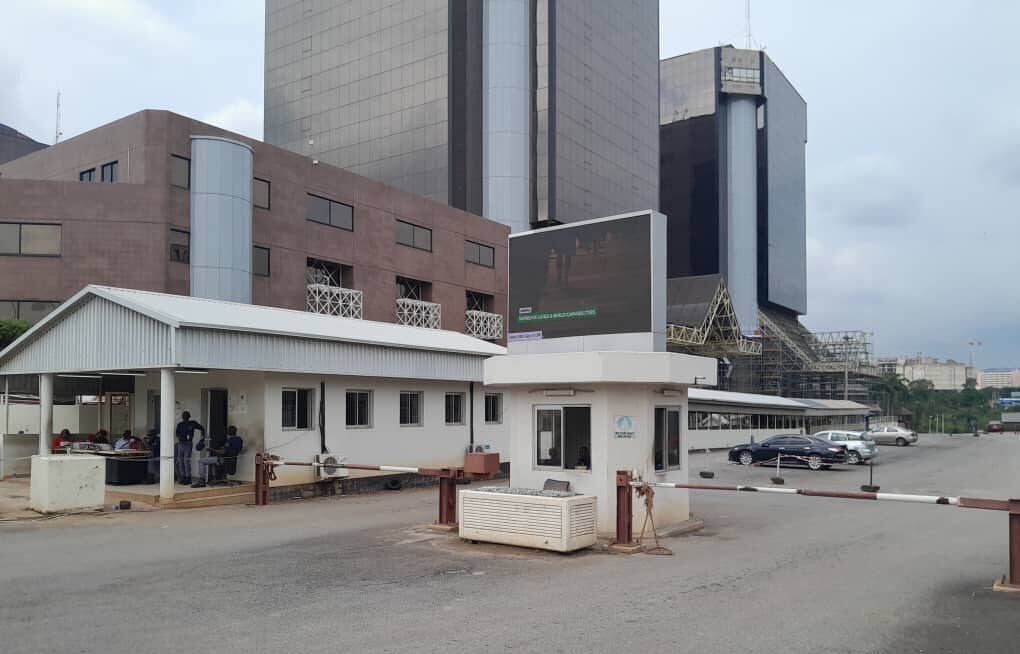Kasim Sumaina examines the impact of gift card trading in Nigeria with many Nigerians using them for online shopping, gaming, and even as a form of currency
The Nigerian gift card market is quietly gathering steam, riding on the back of the country’s booming digital economy, the explosive growth of e-commerce, and the cultural shift toward more cashless transactions.
What once felt like a Western indulgence is steadily becoming part of everyday financial conversations in Nigerian schools, offices, and households. Yet, beneath this rising tide lies a paradox: while the market is surging in value, many Nigerians still have no idea what gift cards are, or how to use them.
A market research report estimates that Nigeria’s gift card industry will reach $3.59 billion by 2029, growing at a double-digit compound annual growth rate. This is no small feat for a financial instrument that remains shrouded in misunderstanding among much of the population.
To put things in perspective, some surveys suggest that up to 60% of Nigerians have never heard of gift cards, let alone owned one. The disconnect is striking, but it also underscores the massive growth potential in the years ahead.
Gift cards, in their simplest form, are prepaid cards loaded with a specific value. They can be physical or digital and are redeemable for goods or services from a designated retailer or platform. Globally, they have become synonymous with convenience and flexibility, whether for online shopping, streaming subscriptions, gaming, or even corporate rewards. In Nigeria, however, their story is still being written.
Cardtonic and the Digital Wave
One of the biggest drivers of the local gift card revolution has been the rise of platforms like Cardtonic, which have stepped in to fill a gap left by traditional banks and payment systems. Cardtonic allows users to buy, sell, or exchange gift cards at competitive rates, providing the trust and convenience that the Nigerian market desperately needs.
The appetite for international platforms like Amazon, iTunes, Google Play, Steam, Netflix, among others, has skyrocketed with the digital lifestyle of young Nigerians. Online shopping is no longer limited to luxury; it has seeped into everyday consumption. Add the allure of global gaming communities and the rise of content streaming, and gift cards have become a passport of sorts, giving users access to a borderless consumer experience.
Yet, the sector is not without its challenges. Access, awareness, and trust remain the three hurdles slowing down broader adoption.
The Campus Pulse: Young Nigerians Speak
In an informal survey across two Abuja-based institutions, the Nigerian Law School and Veritas University, the story of Nigeria’s gift card adoption came to life in miniature. Students reflected the broader contradictions of the market: curiosity, pockets of enthusiasm, but also unfamiliarity and skepticism.
For Yusuf Abigail, a 200-level student at Veritas, the biggest barrier is not the card itself, but the locations tied to their usage.
“Most designated malls are either too far away or only accessible to the rich. That makes it discouraging,” she explained.
Yet, she also admitted that when she owned one, the convenience stood out. Unlike a debit card that risks transfer failures or endless PIN demands, a gift card was predictable. “It gives confidence. I can even hand it to a friend to pick up an item for me,” she said.
Miss Akindele Anipke, however, was more critical. In her eyes, gift cards are still the preserve of Nigeria’s elite.
“An average Nigerian who is struggling for two square meals won’t think of gift cards,” she quipped.
But she acknowledged the role of platforms like Cardtonic in demystifying the process. The problem, in her view, is awareness and accessibility.
“More enlightenment should be carried out,” she stressed, pointing to the scams that plague unregulated vendors.
Indeed, fraud remains a sore point. From partially loaded cards to outright fake ones, many users have horror stories.
Inflation has also added another layer of complexity, with fluctuating exchange rates altering the resale value of cards. For these reasons, students like Akindele insist on sticking to “reputable platforms only.”
Trust, Fraud, and the Inflation Factor
Nigeria’s inflationary pressures are no longer news, but their effect on niche sectors like gift card trading is often overlooked. As prices soar, consumers lean on gift cards both as a spending tool and, at times, a hedging mechanism. When bought at the right rate, gift cards can provide some insulation from currency volatility.
But fraud has the opposite effect, eroding trust. In the absence of regulatory safeguards, too many Nigerians have been burnt by unscrupulous vendors selling already used or tampered cards.
Platforms like Cardtonic, which emphasise security, are trying to fill this trust vacuum. Their success, or failure, will likely shape the sector’s long-term credibility.
The Bigger Picture: Adoption, Policy, and the Youth Market
Beyond anecdotal stories lies the undeniable macroeconomic truth: Nigeria’s youthful, digital-first population is the gift card industry’s greatest asset. The average Nigerian is under 20 years old, lives a significant portion of life online, and is increasingly comfortable with digital payments.
This demographic reality is why analysts project the market to grow from $2.34 billion in 2025 to $3.59 billion in 2029, sustaining annual growth rates above 11%. What began as a niche option is on the verge of becoming mainstream, especially if awareness campaigns gain traction.
A law student who spoke anonymously in Bwari captured this paradox well: “I’m a heavy spender, that’s my problem. If I have a gift card, it will help me save. Platforms like Cardtonic should reach out to campuses.”
His comment illustrates both the demand potential and the untapped opportunity for targeted education.
Policy will play a central role here. Regulators have a chance to both protect consumers and encourage innovation. By establishing clear guidelines for trading, enforcing anti-fraud measures, and supporting digital infrastructure, policymakers can unlock a new layer of financial inclusion. Without such oversight, the risk of scams and user distrust could slow adoption.
The Creative Economy Connection
The conversation about gift cards is not only about consumption; it is also about creation. Nigeria’s creative economy, music, film, gaming, fashion, and content creation, is a natural ally for the expansion of gift card usage. For creators, gift cards represent a way to reach global markets, receive payment securely, and monetise audiences beyond Nigeria’s borders.
By integrating gift cards into payment systems for streaming, digital art, or even merchandise, Nigeria’s creative sector could both expand access and boost GDP contributions. The linkage between gift cards and the creative economy may well be the engine of growth that pushes the market beyond projections.
Why Gift Cards Matter
For sceptics, gift cards may seem like an indulgence, another financial tool designed for a small, privileged class. But a closer look reveals why they matter to Nigeria’s economy.
Gift cards offer a simple, low-barrier entry into the world of digital payments for those without traditional bank accounts.
With the rise of online shopping, gift cards serve as both a payment method and a driver of consumer engagement.
Businesses are increasingly turning to gift cards for employee rewards, promotional campaigns, and customer loyalty programs.
They allow Nigerians to tap into international platforms, bypassing local currency and infrastructure limitations.
Opportunities and Risks
The gift card story in Nigeria is still unfolding. On the one hand, the numbers suggest undeniable momentum: billions in projected growth, rising youth adoption, and expanding corporate interest. On the other hand, the structural challenges, low awareness, fraud, and infrastructure gaps remain formidable.
Companies like Cardtonic are well-placed to capitalise, provided they continue to build trust, integrate user education, and innovate around customer needs. Meanwhile, government regulators face the task of crafting policies that protect users without stifling growth.
Ultimately, the trajectory of Nigeria’s gift card market will hinge on trust and awareness. If more Nigerians come to see gift cards not as an elitist tool but as an accessible, everyday payment option, the surge predicted for the next decade will not only materialise but perhaps even exceed expectations.
From the bustling malls of Lagos to the quiet lecture halls of Abuja, the buzz around gift cards is growing louder. Whether as a tool for online shopping, a hedge against inflation, or simply a convenient way to gift, the market is carving out a space in Nigeria’s digital economy.
The post Making the Best of Surge in Gift Card Trading appeared first on THISDAYLIVE.




